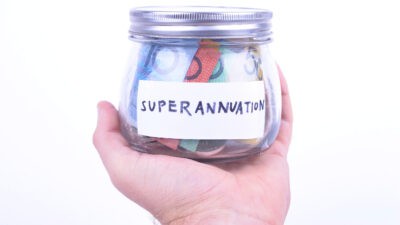
Image source: Getty Images
"I like people admitting they were complete stupid horses' asses. I know I'll perform better if I rub my nose in my mistakes. This is a wonderful trick to learn."
— Charlie Munger
How's that for a place to start.
Yep, this is my 'rub my nose in it' moment.
You're welcome.
My biggest mistake was made in 2013. And it's a doozy.
You see, I didn't lose just 50%.
Or 70%.
It was worse than that.
No, it wasn't 80%.
And not 90%.
Yep, still worse.
No, not even 100%.
Worse.
Huh?
Yep, worse.
Let me explain.
See, if I'd bought $1,000 shares in a company and that company had gone broke, I'd have lost my $1,000.
Which would, to be fair, really suck.
But you know what's worse?
Costing myself even more than that $1,000.
No, I wasn't playing options or some other strange derivative 'trading strategy'.
The money I 'lost' was in the form of foregone profits.
Here's how it played out.
In 2012, I recommended that members of Share Advisor, one of the Motley Fool services I run, buy shares in Domino's.
The share price at the time was around $8.50 or so. (I'd check to be exact, but it hurts too much!)
In 2013, sitting on a nice 40% profit and in the face of slowing growth and potential market saturation, I happily recommended our members sell.
Beauty!
You can't go broke taking a profit, after all…
Except.
Except the shares are now (and it hurts to even type this) $105.98.
Yep.
That would've been a 12-bagger.
Instead of turning our hypothetical $1,000 into $1,400 (which was nice), it could have been worth more than $12,000 instead.
Or $10,000 into $120,000.
You get the point.
I could've had 11 absolute flame-outs and still broken even, had I held Domino's until today.
Yes, most of my industry and the media (and more than a few members) focus on trying to avoid losing 20, 30 or 40%.
And that's not wrong. If you can avoid losing money, you should.
But I dare say most (if not all) investors would do themselves a favour by recalibrating their gaze to the ones that got away (the ones they either sold too early or never held at all).
I'm not even talking about cherry-picking the very best performing stock on the ASX and giving yourself grief for not buying it.
You can't buy every winner — and if you owned everything, you'd just end up with the market's average result anyway.
But my Domino's experience has taught me a few lessons.
First, "be slow to buy, and even slower to sell". Yep, write that down, and re-read it often. When you own a quality business, I reckon you should part company with it only reluctantly, and give it plenty of rope before you do.
Second, by all means assess the risk of losing money, but also consider the risk of not making money. That is, consider the full range of outcomes. Turns out I was wrong to sell Domino's. But even if I was right and Domino's business was maturing, maybe the shares might have fallen 25% or 40%. Painful, sure, but the potential for a 1,200% gain makes up for a lot of smaller losses.
Third, don't be blinded by your own mistakes. I'm happy to say I (belatedly) again recommended our members buy Domino's, in 2018, at around $42. It would have been silly (and stubborn and arrogant) to stick my head in the sand and refuse to acknowledge my mistake. No, it doesn't make up for the missed opportunity altogether, but at least we've gone some way to minimising the cost of the mistake.
Here's the hard part: Now it's over to you.
I can't make you change your approach. Some of you, despite my best efforts, will still prioritise avoiding losses over maximising gains. That's fair enough. You need to invest the way you think is best for your circumstances, personality and risk tolerance.
But I hope that this will strike a chord with at least some of you.
I hope you'll realise that investing is a portfolio game, where the aim is to maximise the long term value of the total portfolio, not minimise the number of individual losing investments you make.
I hope you'll realise that, well chosen, a portfolio of companies with big potential gains, appropriately handicapped for the odds of success, has a good chance of beating a portfolio of companies chosen to minimise the chance of individual loss. Perhaps even by a decent margin.
I'm happy to say that, thus far — almost 10 years in — Motley Fool Share Advisor is still soundly beating the market,
The average return, per recommendation, is currently 61.2%, compared to an investment in the All Ords on the same date, which would have returned an average 38.9% — both including dividends.
That's not bad over more than 9 years and more than 100 individual buy recommendations.
Yes, despite that mistake.
Actually, it's in part because of that mistake: it was a lesson learned, and hopefully applied diligently thereafter.
Still, our scorecard (and, most importantly, our members) would have been better off if I'd never made it at all.
Which is why I'm hoping there's value in rubbing my nose in this particular mistake: I hope to never make it again, and I hope you can learn from it, too.








